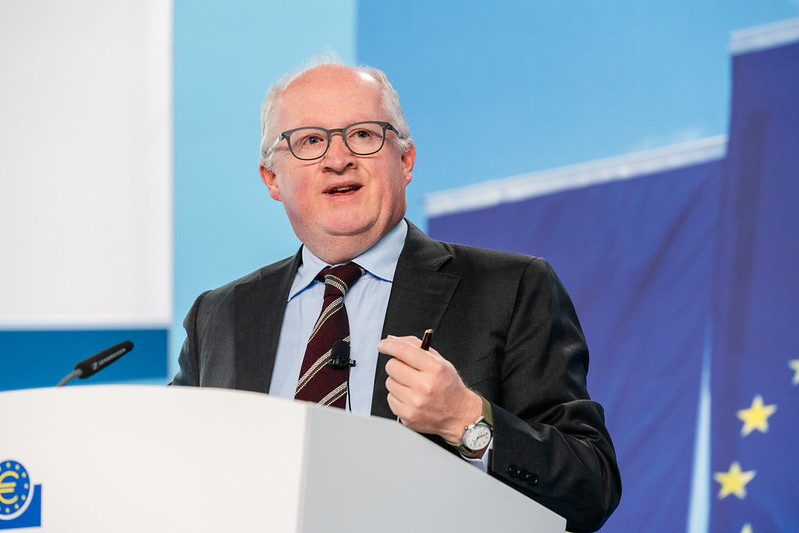ECB’s Lane: Europe Must Deepen Financial Integration and Modernize Central Bank Money
23 October 2025

By David Barwick – FRANKFURT (Econostream) – European Central Bank Chief Economist Philip Lane on Thursday said Europe must accelerate efforts to complete the banking union and the savings and investments union, while ensuring that central bank money keeps pace with financial digitalization.
On the occasion of receiving the 2025 Pádraig Ó hUiginn Award in Dublin, Lane said a successful financial services sector depends on “high-quality public institutions and sustainable public finances,” stressing the complementarities between the private and public sectors. The Irish banking crisis, he said, had shown the high costs of complacency toward financial regulation.
At the same time, Lane warned that regulation “should neither deter new entrants nor inhibit the capacity of the financial services sector to innovate and roll out new technologies.” Regulators and firms shared an interest in ensuring that digitalization does not undermine a well-regulated financial system, he said.
Lane highlighted the ECB’s work on a digital euro, describing it as “a digital version of central bank money” that would preserve the full interchangeability of commercial and central bank money. He also noted the ECB’s approval of a plan to enable distributed-ledger-technology transactions to be settled in central bank money. The project takes a two-track approach: “Pontes,” a near-term pilot offering, and “Appia,” a potential long-term solution, he said.
Turning to the broader financial architecture, Lane said geopolitical developments had made it “all the more urgent to make substantial progress on integrating the European financial system.” Completing financial-market integration was “critical,” he said, to improve efficiency, expand financing options for firms, lower transaction costs for households and make Europe more attractive to global investors.
An integrated financial system, he said, would also help fund the green transition and the European defence industry, supporting joint pan-European initiatives.
“These topics are high on the agenda for today’s European Council and Euro Summit meetings in Brussels,” Lane said, underlining the need for “an integrated-but-open European digital-ready financial system that ensures sovereignty and resilience.”
